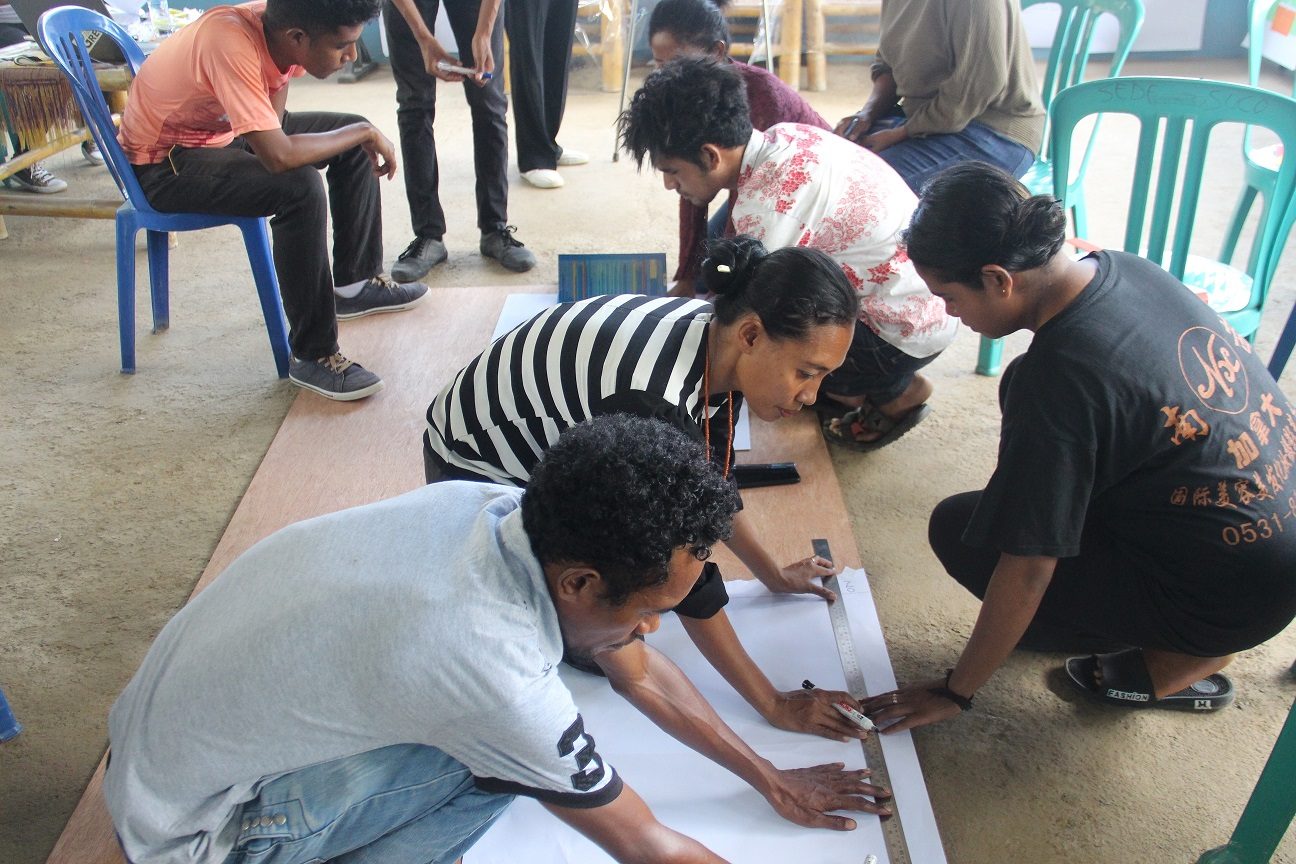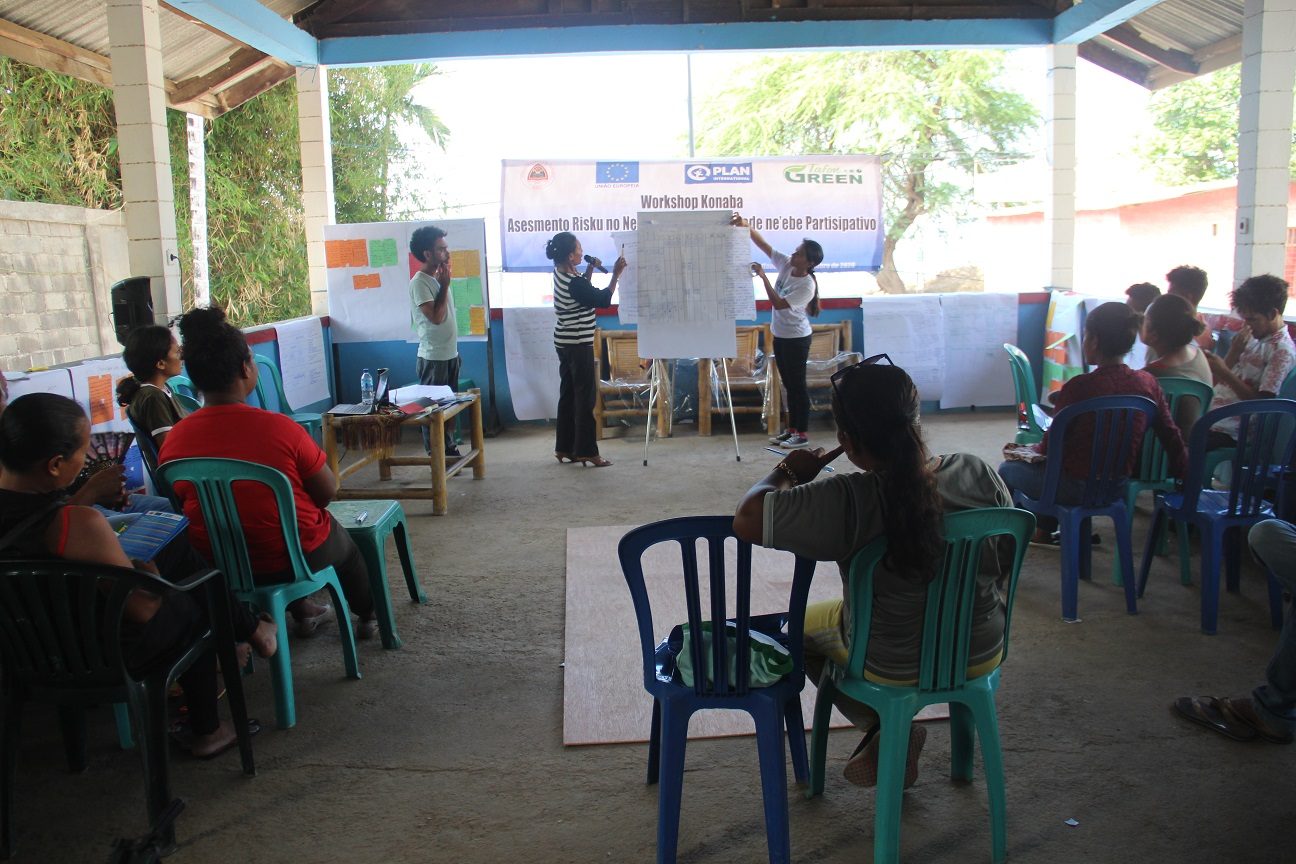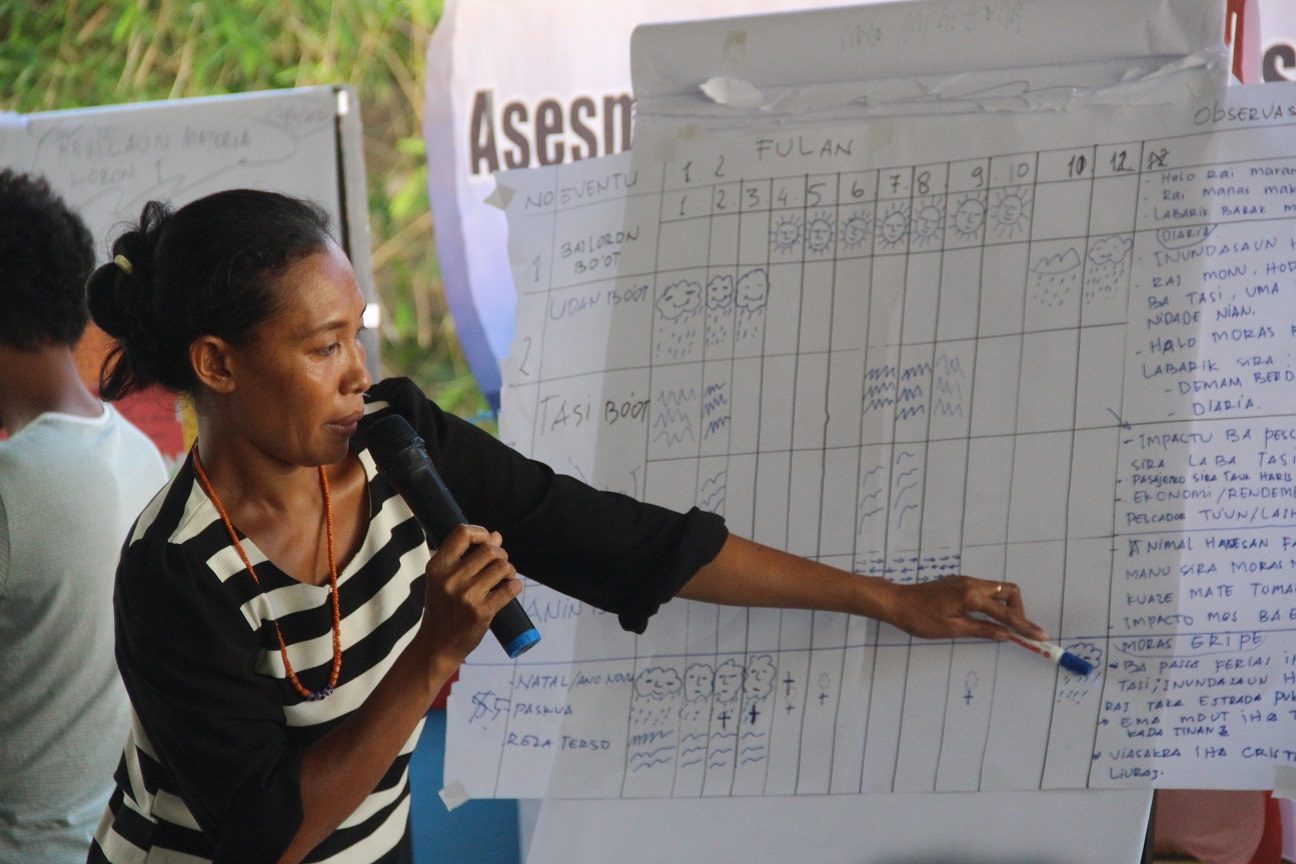Civil society leads climate action in Timor Leste
25 May 2021Gender-sensitive and socially inclusive movements at the forefront of climate resilience!

Advocating for climate action
Timor-Leste, or East Timor, is one of the most climate-vulnerable countries in the world, prone to earthquakes, tsunamis, cyclones, heavy rainfall and droughts. The problem is exacerbated by many factors, like high poverty rates, dependence on climate-sensitive livelihoods, increasing environmental degradation, and limited institutional capacity and infrastructure.
Civil society must hold centre stage in climate action policies. That is why Plan International has joined forces with local communities, authorities and civil society organisations (CSOs) in Timor Leste to work together to strengthen the capacities of civil society to better prepare for and respond to the impacts of climate change, while promoting gender-sensitive and socially inclusive policies.

Our work at a glance:
- Trainings on climate change and policies that can mitigate its impacts
- Awareness-raising activities amongst communities on the effects of climate change
- Awareness-raising activities on local-level climate-smart responses and adaptive actions
- Inclusion of school children in climate change dialogues to ensure their voice is included in advocacy work
- Develop products that come from participatory knowledge and that can serve as a resource for government partners when it comes to climate change decision-making.
From early on, the project aspired to include women and girls in a meaningful and impactful way. We talked with women and girls about how we can ensure female representatives are part of hazard vulnerability and capacity assessment processes. Plan International also provided special tools for a gender pre-assessment, and separate focus-group discussions dedicated specifically to women and girls. As a result, women currently represent 31% of the Village Disaster and Climate Management Councils (VDCMCs) and are leading the VDCMCs in 3 villages.
Village Disaster and Climate Management Councils, or VDCMCs, are local-level decision-making bodies that are working on disaster preparedness and climate management actions at suco (or village) level.
Meet one of the women driving change in her community
One of the central voices in the climate discussion is the one of Francisca. Francisca is the Chief of Suco Metiaut (an administrative unit roughly translating into “village of Metiaut”), close to the capital Dili. As part of her role, she is leading the work of 8 members of the VDCMC in climate-related planning and actions – but that’s not all. On top of her role in the VDCMC, she takes care of her family and is the Chief of the Metiaut Women’s Youth Group.
While campaigning to become a VDCMC Chief, Francisca wanted to represent women who have been voiceless. She wanted to show that women can and should be part of the solution and improve decision-making for disaster and climate management. And it worked!

“When I was elected President of the VDCMC, I felt happy and proud of myself. This was the first opportunity for me to lead and make decisions towards climate management and reducing disasters.”
She now encourages other women to participate and work together to influence authorities so that they take proper action for climate change and disaster risk reduction.
Her role as Chief keeps her busy. “I have participated in climate change adaptation workshops at suco (village) level, developed roles and responsibilities for the VDCMC group and developed the suco action plan for disaster and climate change adaption. I have also worked with teachers and students in primary schools to integrate their action plans into the municipal action plan.”
Unsurprisingly, her work is already producing results. “The municipal authorities were very positive to our presentation on the adaptive plans and I expect our planning to be implemented with the support of relevant institutions at the municipal level.”
Together with Francisca, 25 local civil society organisations, and over 100,000 people benefit from the project, that covers 17 villages around Timor Leste.
Looking into the future
Our work continues. In the coming months, we will support VDCMC trainings on the gender transformative approach of the project, focusing on six pillars:
- Gender Norms – raising awareness of discriminatory gender norms to increase gender capabilities, roles and representation in decision-making;
- Agency – working with girls and young women to increase their knowledge and ability to speak out on the issues that affect them; a risk assessment will also include self-protection;
- Boys and men – working with VDCMC to support boys, young men and adult men in promoting gender equality and changing power dynamics to explore and develop non-violent, positive and diverse masculinities;
- Condition and position – increasing the wellbeing of communities, advocating for equal care, support recourses and opportunities;
- Diversity – addressing the different needs of children, youth and adults in all their diversity despite their gender, age, disabilities or any other exclusive factors;
- Environment strengthening – enabling environment strengthening of societal structures, including by enabling gender equality and social inclusion.
The project is funded by the Directorate General for International Partnerships, European Commission.
Categories: Skills and work, Youth empowerment


